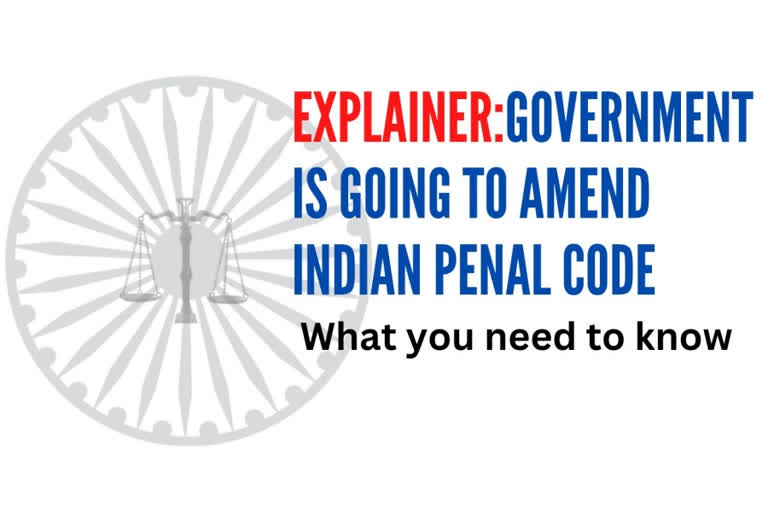New Delhi: Home Minister Amit Shah’s statement to a conference of home ministers of states that the centre was going to amend the British era Indian Penal Code has brought the focus on the law that has been the central legislation for the criminal justice delivery system in South Asia for the last 160 years.
Indian Penal Code or the IPC, as the name indicates, is the substantial code of law to deal with all kind of criminal offences in India. The law was enacted during the British period in 1860 and it came into operation in the united India in 1862. And after the partition of the country in 1947, India retained it as Indian Penal Code (IPC) and Pakistan adopted it as Pakistan Penal Code (PPC).
And after independence of Bangladesh from Pakistan in 1971, the law with some changes has been adopted in Bangladesh as the Penal Code, 1860 of Bangladesh. In addition to India, Pakistan and Bangladesh, the original law passed during the British Raj is in operation in many other commonwealth countries and former British colonies with some changes.
The Indian Penal Code, as amended up to date, has been organised in 23 chapters and 511 sections. Some of the IPC sections are well recognised by ordinary Indians and have become household names due to their widespread use in Indian movies and other mass media.
Most prominent among them is Section 302 of the Indian Penal Code that deals with punishment for committing the offence of murder. While Section 302 deals with the punishment for murder, it is often less discussed Section 300 of the IPC which deals and defines the offence of murder.
Similarly, people often come across the Section 120A and 120B of Indian Penal Code that define criminal conspiracy and punishment for criminal conspiracy respectively and are widely invoked by law enforcement agencies in addition to other penal provisions that deal with the offence.
The Indian Penal Code is a substantial code and deals with most of the conceivable offences with elaborate illustrations and explanations to explain relevant sections even though it was written more than 180 years ago by Thomas Macaulay in 1834. The Indian Penal Code has been amended more than 70 times since 1870 when it was amended for the first time.
However, some of the amendments such as addition of 498A that deals with dowry prohibitions and punishment and the amendments made by the government in the wake of Nirbhya rape case in national capital Delhi in 2012 have received wider public attention. In his address, Amit Shah said the government was also going to amend the Criminal Procedure Code of 1973 (CrPC).
The CrPC is the procedural law through which the provisions of substantial criminal law, the Indian Penal Code, are actually implemented. Amit Shah said the government has received several suggestions for improvement in the IPC and CrPC and a bill to amend them will be introduced in Parliament very soon.
